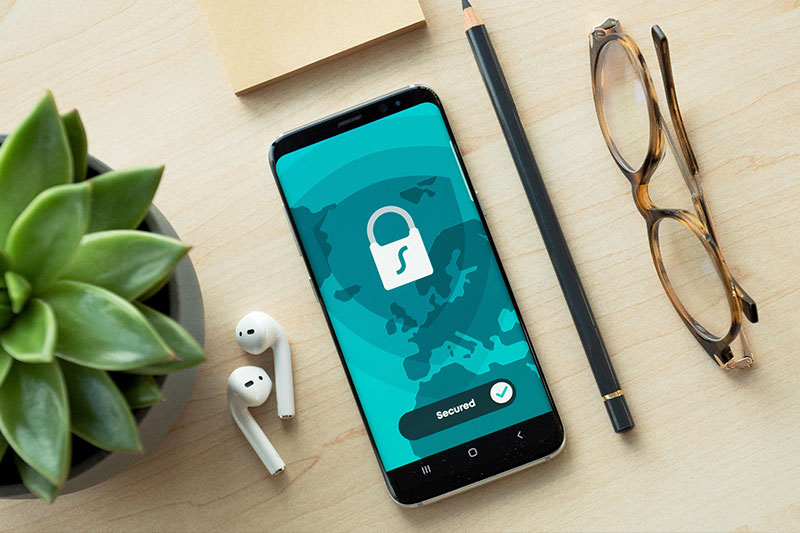Cyber security is a growing concern for many entrepreneurs and business operators. From VPNs to switching to cloud-based services, these strategies will help keep your data safe.
In 2020 and beyond, we will be surrounded by a diverse range of technologies in our everyday life. Smartphones will continue to get smarter, and even general household and office appliances will become yet another node in the digital ecosystem. On the downside, every new device creates an end-point within a network, forging an entry point that can be exploited via malware and ransomware, or through which accidental data leaks can occur.
As a result, cyber security has emerged as a key area that every CEO, business owners or entrepreneur needs to address, as the costs of data falling into the wrong hands can be devastating.
So, with technology rapidly evolving, what tools and solutions are available to help combat the cunning ways in which hackers often exploit networks? Let’s explore our options.
Use cloud-based services
Cloud-based services are increasingly been used by companies of all sizes. Various solutions exist, from providing secure online storage solutions to hosting and operating your IT applications within one centralised cloud environment.
Cloud services effectively remove many pathways for hackers to infiltrate your network by removing the need for physical IT infrastructure, which would otherwise undergo regular upgrades when systems become obsolete. For example, accountants can now use services such as cloud based QuickBooks, which uses a more secure cloud desktop as a service infrastructure to handle your company’s finances.
Furthermore, you’ll be less dependent on multiple third-party programs for e-commerce, emailing, or when using any general business apps. Instead, all software is hosted and accessed through the cloud. This means you’ll no longer be at the mercy of other vendors to ensure their software code is secure; data will be exchanged and stored within the cloud.
Of course, cloud services aren’t without their risks, which is why many providers incorporate authentication tools to prevent unauthorised users or devices gaining entry. Other cutting-edge AI-based tools such as behavioural analytics and machine learning are constantly evolving to tackle new and emerging cyber threats, so you’ll reap passive benefits just by using cloud services.

Outsource cyber security specialists
Managed cyber security providers take the pressure off you and your IT teams. Online security has undoubtedly increased in importance in the last decade. However, despite the rise in demand, cyber security professionals are in short supply.
The prospect of hiring an in-house security team is often out of the question for most small to medium-sized businesses who are financially unable to cover the costs. Even burdening your existing IT staff with the responsibility can be overwhelming and will often take up much of their time when dealing with security issues.
It’s possible that even an in-house team may fail to recognise network vulnerabilities. Therefore, it’s wiser and more cost-effective to hire an outside team of experts who have more knowledge and experience in the field. Their ability to respond swiftly to unfolding incidents – and even prevent an attack from occurring simply through their monitoring methods – could keep your business out of the danger zone.
Purchase a VPN
A professional VPN service can further bolster your IT security. VPNs work by encrypting Internet traffic whilst tunnelling it to a remote server and suppling a new IP address. Your real IP address remains hidden and the VPN prevents online services from discovering your true location. Moreover, your ISP is prevented from gathering, storing, and analysing your online activities.
For business owners, remote workers, or freelancers frequently on the move, VPNs are also an effective tool to maintain access to all services you require. Many countries impose restrictions on entertainment services such as Netflix, YouTube or Spotify, and even outright censorship on social media and various news outlets. For example, digital marketers will find a VPN comes in very handy for accessing advertising campaigns anywhere in the world.
Use secure Wi-Fi networks
Public WiFi networks, found in cafes, restaurants, hotels, and airports, are considered vulnerable, exposing you to security risks due to their nature of being unencrypted. Such WiFi networks also have the ability to collect information about their users.
Snoopers are also known to mimic existing networks, in the hope that you’ll connect your device, to redirect your traffic to fake websites. From here, they can steal log-in credentials and extract other personal data.
Of course, avoiding all public WiFi may not be an option, and thus, a VPN is an imperative tool to use. You’ll be able to encrypt your traffic as it enters the WiFi network, making the data completely unreadable and useless to hackers as it’s extremely unlikely they’ll be able to decipher the code. VPNs use AES-256 encryption, and there’s currently no evidence to indicate that it can be decrypted, making it the ideal solution to protect your data.

Integrate a Mobile Device Management (MDM) solution
This is an option for medium to large workforces who have implemented a strict Bring Your Own Device (BYOD) policy, or with remote workers having to rely on their own devices.
MDM tools are comprehensive security suites which allow companies to monitor and control aspects of their staff’s mobile devices, tablets or laptops. They provide companies with the option to remotely manage various apps, update operating systems, and obtain usage and location data.
Mobile device management systems help not only ensure that employees adhere to BYOD policies, but also remain compliant with data regulations such as the EU’s GDPR and varying state privacy laws.
Secure your DNS servers
DNS stands for Domain Name System, which translates domain web addresses into their corresponding IP addresses. Whenever you enter a website URL, a DNS query is performed, which then searches through the DNS records in order to match its corresponding IP address. From here, the contents of each website is displayed.
This is the most basic function of the Internet, and it wasn’t designed with cyber security in mind during the Internet’s inception over 30 years ago. DNS requests often pass through firewalls without being inspected; therefore, it’s a sitting duck in any IT infrastructure, providing an easy entry point for malware or ransomware.
By outsourcing to a dedicated DNS service provider, you’ll receive 24/7 protection from common threats such as DDoS attacks. You also won’t need to worry about lagging speeds or network crashes; DNS providers implement load-balancing to ease the stress from a spike in Internet traffic. Overall, with a DNS provider, you’ll be ready for that much-welcomed influx of visitors.
Stay knowledgeable, keep learning
Knowledge is power. And protecting your data depends on building your own understanding of cyber security practices help to withstand the threats that new technology poses.
Human errors contribute to the many data breaches that occur to businesses. Simple practices, such as choosing strong passwords, or having the eye to spot a bogus email or a suspicious URL, are all ways in which humans can play their role in preventing cyber crime.
Even being aware of social engineering is key to shielding your business. Many social engineerings use cunning tactics to trick employees into giving away crucial details, such as passwords or account details. They take advantage of human error, as opposed to hacking networks directly. Thus, it’s paramount to educate yourself – and employees – of how social engineers operate.
The consequences for a data breach can be anything from a breakdown in trust to legal action from clients or customers. Further financial costs to repair damage to IT networks and rebuild your reputation can ensue. Therefore, taking cyber security seriously is key to your business’s survival.
Related Articles
7 Things Your Startup Should Know About Cyber Security in 2020
COVID-19 Cyber Security: How Firms Can Better Protect Their Data
Cyber Crime Damages Expected To Reach USD 27 billion by 2025





